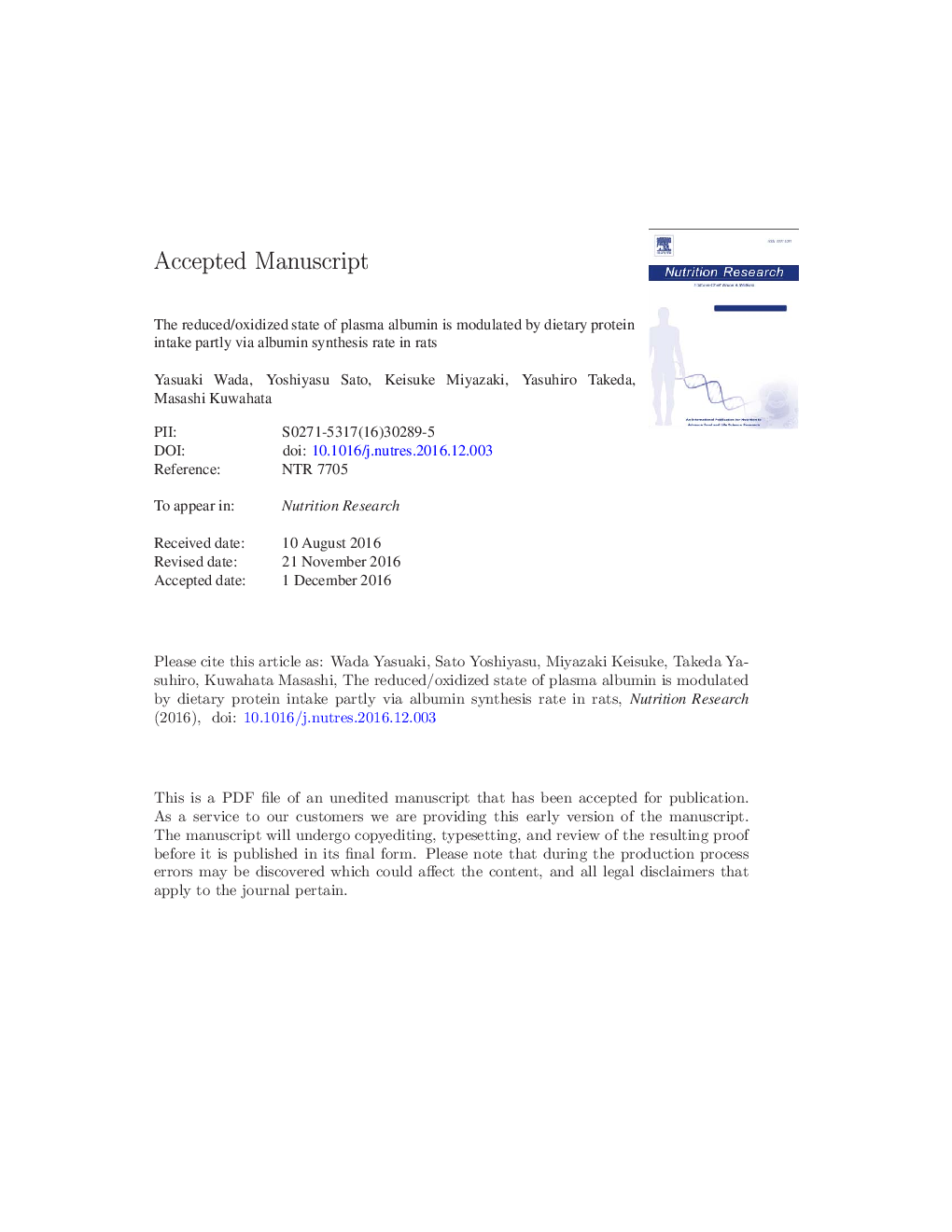| Article ID | Journal | Published Year | Pages | File Type |
|---|---|---|---|---|
| 5588702 | Nutrition Research | 2017 | 49 Pages |
Abstract
The reduced/oxidized state of plasma albumin is influenced by many factors, including chronic diseases and strenuous training. Recently, the reduced/oxidized state has also been shown to be associated with dietary protein and energy intakes in rats. We hypothesized that dietary protein intake may modulate the reduced/oxidized state of plasma albumin by altering the rate of albumin synthesis and that the reduced/oxidized state could therefore serve as a novel marker of protein undernutrition. We tested this hypothesis by examining male growing rats placed on a low-protein or energy-restriction diet. In the 4-week experiment, animals fed a low-protein diet (3% casein), whose dietary intakes were lower than those fed control diet (20% casein), showed significant decreases in plasma albumin level and the ratio of the reduced form of albumin to total albumin. Animals given the same amount of control diet as the low-protein diet group (approximately 30% energy restriction) also showed the above decreases, albeit to much more limited extents. The ratio of reduced to total plasma albumin correlated significantly with plasma albumin fractional synthesis rate. When animals were maintained on the low-protein diet for as long as 12 weeks and then fed the control diet for 1 week, the decreased ratio of reduced to total plasma albumin, but not plasma albumin level, resolved rapidly. The reduced/oxidized state of plasma albumin would thus reflect dietary protein status via plasma albumin turnover including the fractional synthesis rate and could prove useful as a sensitive marker of protein undernutrition.
Keywords
Related Topics
Life Sciences
Biochemistry, Genetics and Molecular Biology
Endocrinology
Authors
Yasuaki Wada, Yoshiyasu Sato, Keisuke Miyazaki, Yasuhiro Takeda, Masashi Kuwahata,
